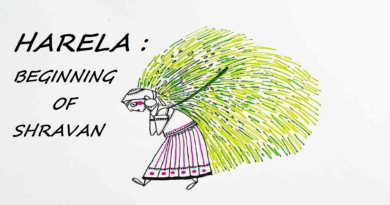Why I am an atheist and other works by Bhagat Singh
‘Why I am an atheist and other works‘ is a small book which comprises of 17 letters which Bhagat Singh ji wrote to his friends and family during the freedom struggle. The main component of the book is the essay written by him, titled, ‘Why I am an atheist’. This essay was his response to one of his friend who believed that he had turned into an atheist due to his vanity.

The words of the great revolutionary and freedom fighter Shaheed Bhagat Singh are potent enough to fill a person with valour and pride in oneself. Though a small book in size, yet it content is far more valuable than much of the fiction work. His revolutionary ideology influenced the writing of Bhagat Singh ji. He did most of his writing work while being in prisons.
Every letter contains so powerful words that sometimes it would require two to three readings of each.
“I wanted to settle for myself whether it was in the days of peace and enjoyment alone that I could boast of being an atheist or whether during hard times as well as I could to those principles of mine.”
The book includes the work from 1929 to 1931. The book contains nearly all the aspects of life. Be it love and sacrifice, service towards Bharat Mata or the proper administration by the state. This shows the exemplary writing skills of Bhagat Singh ji. The words which I liked are,
“People like us who are proud to be revolutionary in every sense, should always be prepared to bear all the difficulties, anxieties, pain and sufferings which we invite upon ourselves by the struggles initiated by us and for which we call ourselves revolutionaries!”
While reading the book one would surely encounter the reason which Bhagat Singh ji gave for his hanging. This is one of the key sentences which he wrote. He had written to Shaheed Sukhdev,
“I can welcome facilities and amnesty for all only when its effect is permanent and some indelible impressions are made on the hearts of the people of the country through our hangings.”
The writings make one fact very clear that for him, country was the foremost priority even more than life. He had laid stress on the betterment of the people, society and economy by harmonious means.
“When the fate of the country is being decided, the fate of individuals should be forgotten.”
The book also reveals the fact that the contemporary communism along with Marxism impacted his thinking to a greater extent. For instance, in a letter (dated 24 July, 1930) to his close school friend, Jaidev Gupta, he requested some books to read. Some of the books were,
- Militarism by Karl Liebknecht.
- Soviets at work.
- Left-Wing Communism.
- Civil War in France by Karl Marx.
- Historical Materialism by Bukharin.

His visionary approach towards the fate of India after independence is beyond praise. In the book itself, in one of his letters he described,
“The political revolution does not mean the transfer of state(or more crudely, the power) from the hands of the British to the Indians, but to those Indians who are one with us as to the final goal, or to be more precise, the power to be transferred to the revolutionary party through popular support. “
Many incidents in the book are simply beyond description. The readers will have a great and thought provoking experience if read well. Also, the readers may finish the book in a single go. As far as the genre is concerned, I would recommend the book to each and every person out there in the public, especially students and youth. The final letter would be an astonishing one for all. No boundedness can be there over the works of such an outstanding and inspiring personality. Surely, it would be highly impactful journey for the readers of the book.





Pingback: Fake news Of Former Lok Sabha Speaker Sumitra Mahajan Got viral